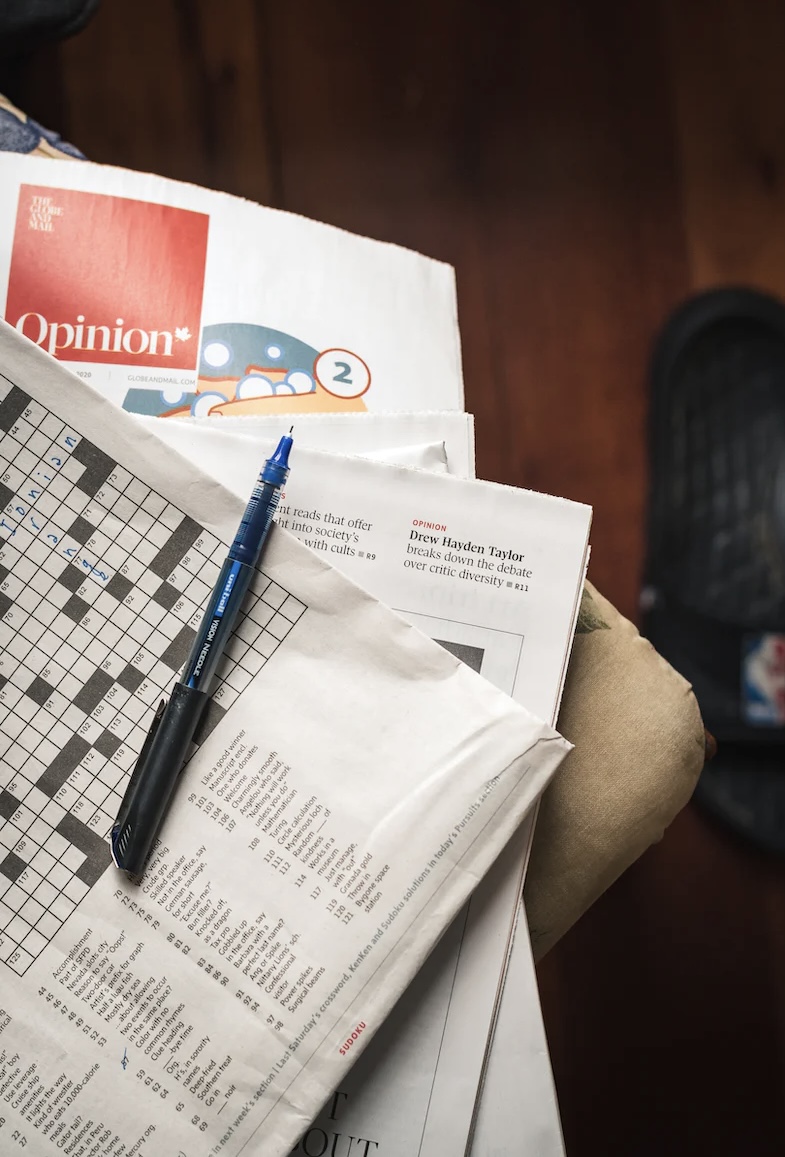
Crossword puzzles may facilitate cognitive health in aging populations.
Words are hard.
This is especially true of the English language.
The vocabulary is vast.
It is filled with unique rules and exceptions to rules for grammar and conjugation.
When Gretchen and I were living in Germany (many "moons ago"), we became painfully aware how difficult English is for non-native speakers.
German has reliable rules for grammar, word pronunciation, and sentence structure.
American English, not so much.
According to a recent Money Talks News article titled “Crossword Puzzles or Video Games: Which Better Protects Your Brain?,” language exercises the brain.

Working on crossword puzzles can improve mental functioning.
A recent study conducted by researchers at Duke University and Columbia University focused on the effects of crossword puzzles on the health of seniors by comparing them to the use of web-based cognitive video games.
The study population involved 107 older individuals with an average age of 71.
Each participant had mild cognitive impairment at the start of the study.
Mild cognitive decline is more severe than mental lapses associated with normal aging, but is less severe than dementia.
Symptoms include difficulty with judgement, language, memory, or thinking.
Individuals with mild cognitive decline have a heightened risk of developing Alzheimer’s.
Participants were divided into groups and either trained in cognitive video games for 12 weeks of crossword puzzles for 12 weeks.
Follow-up "booster" training sessions were also provided for up to 78 weeks.
What were the results?
Those who completed the computerized crossword puzzles demonstrated improvements in their mental functioning.
While cognitive computer games helped enhance the cognitive health for those in early stages of cognitive decline, the crossword puzzles helped participants whether in the early or later stages of mild cognitive decline.
Participants who received the crossword training also showed less shrinkage in the brain at 78 weeks.
Although further research in interventions is necessary, the preliminary results would seem to encourage working on crossword puzzles from the comfort of your own home to slow potential cognitive decline.
As much as I detest crossword puzzles and even "bored" games with my family, this may cause me to reconsider.
Hmmm, how about a 1,000 piece picture puzzle over the holidays?
Nah, I will take my chances.
Reference: Money Talks News (Nov. 5, 2022) “Crossword Puzzles or Video Games: Which Better Protects Your Brain?”
REMEMBER: “The choice of a lawyer is an important decision and should not be based solely upon advertisements.”
This statement is required by rule of the Supreme Court of Missouri.
